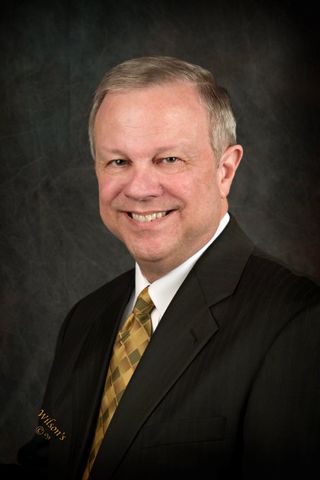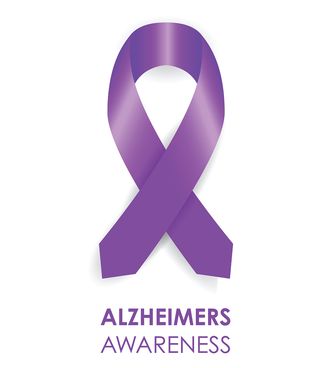Why submit medical expenses?
When applying for Wartime Pension benefits through the Veterans Administration, the claimant must meet both income and asset limitations. Practitioners focus mostly on reducing assets to qualify; however, the claimant’s income must also meet the income standard. A claimant’s yearly family income must be less than the maximum annual pension rate (MAPR) amount set by Congress for any particular year to qualify. Unlike transferring assets to qualify, a claimant cannot transfer income in order to reduce or eliminate it for VA purposes. Sometimes the only way to reduce countable annual income for a claimant is to provide documentation to the VA of allowable medical and dental expenses to offset that income. Considering how medical expenses play a crucial role is critical to a successful claim.
 What medical expenses may be submitted?
What medical expenses may be submitted?
Not all medical expenses are considered allowable by the VA. The medical or dental expense must have actually been paid by the claimant or claimant’s spouse and be unreimbursed by insurance or any other source, and it may be incurred by any member of the claimant’s household, and even by non-dependents in some cases. The VA provides the following list of examples of medical expenses that might be considered in their instructions for VA form 21P-8416:
- Hospital expenses
- Doctor's office fees
- Dental fees
- Prescription/non-prescription drug costs
- Vision care costs
- Medical insurance premiums
- Monthly Medicare deduction
- Nursing home costs
- Hearing aid costs
- Dental fees
- Home health service expenses
- Expenses related to transportation to a hospital, doctor, or other medical facility
The VA Adjudication Manual gives a more detailed list of common allowable medical expenses in M21-1MR, Part V, Subpart iii, Chapter 1, Section G.42.c. From the total annual medical expenses that the VA considers, only that part which is more than 5% of the maximum rate of pension for your particular claimant may be deducted from income. Thus, you must always consider this deductible when seeking to offset income with medical expenses. The Lawyers with Purpose VA Qualification Worksheet automatically makes this calculation for you.
The VA must consider all expenses that are directly related to medical care, even though this care does not necessarily have to be provided by a licensed health professional. This applies most notably in the case of home health care when the “VA has rated the disabled person (beneficiary or Veteran’s spouse if the Veteran is dually entitled to compensation of at least 30 percent) entitled to A&A or Housebound,” M21-1MR, Part V, Subpart iii, Chapter 1, Section G.43.d.
When to submit medical expenses
Medical expenses should be submitted to the VA at essentially three different times: at the initial application stage, and once approved, after the end of any particular calendar year and whenever there is a significant change in medical expenses. There are two categories of medical expenses that the VA recognizes: prospective and actual medical expenses that are related to when you submit medical expenses. Pursuant to the VA Adjudication Manual M21-1MR, Part V, Subpart iii, Chapter 1, Section G.44.d, “normally, medical expenses are deducted from an award after the fact, based on the claimant’s report of expenses actually paid. However, under 38 CFR 3.272(g), medical expenses may be allowed prospectively if the claimant is paying recurring nursing home fees or other reasonably predictable medical expenses.” When you first apply for VA benefits, you should submit prospective medical expenses for the 12-month period following the effective date. Unfortunately, nowhere is it defined what is considered “reasonably predictable,” and this determination is left to the discretion of the individual adjudicator. In my firm’s experience, the VA will often not consider prescription costs, incontinence supplies, or over-the-counter medical supplies or medications as “reasonably predictable” recurrent monthly medical expenses.
After approval of VA benefits, all actual medical expenses may be submitted for the VA’s consideration. You have until the end of any year to submit actual medical expenses for the prior calendar year. You only need to submit actual medical expenses each year if you are relying on those actual expenses to offset income. If the recurring medical expenses are sufficient to offset the claimant’s income, there may be no need to update the VA annually regarding actual medical expenses. The only other time you should submit medical expenses to the VA is when these change significantly. An increase in medical expenses may not make a difference in the amount of benefits paid but should be reported to the VA nonetheless. A decrease in medical expenses may mean a reduction or even termination of benefits, thus it is important to notify the VA as soon as possible regarding a decrease in order to avoid a potential overpayment of benefits.
How to submit medical expenses
The main application forms for non-service-connected pension – the VA forms 21-527EZ and 21-534EZ – both have small sections for reporting medical expenses. However, there is one specific VA form used exclusively for medical expense submission: VA form 21P-8416 “Medical Expense Report.” You are, however, not required to notify the VA of medical expenses using this particular form. As long as your submission includes the specific purpose for which the payments were made, the amount paid, the date paid, the name of the provider, and for whom the expense was paid, that is sufficient to constitute notification. Generally the VA will accept notification of medical expenses without supporting documentation like receipts unless the adjudicator has cause to question any of the expenses. For this reason, you should advise your client’s family to maintain records of all medical expenses for at least three years, in case the claimant is ever called upon to substantiate those expenses.
Expected changes for medical deductions
In January 2015, the VA issued proposed changes to the regulations governing deductible medical expenses. Of note, when the rules become “final” (expected in February 2016), the VA will no longer count the fees charged by independent living facilities as deductible medical expenses and will cap the deductibility of home health care at $21 per hour.
Please join Dave Zumpano, Sabrina Scott (Director of VA Services, LWP), Kimberly Brannon (Technical-Legal) and me on Monday, December 14 at 4:00 pm eastern as we have a panel discussion of the 2016 VA changes, VA planning and accept your questions. It is our duty as the leading estate planning attorneys in the nation to be prepared and educated on the VA changes coming in 2016, and we at LWP are excited to make sure all of our members are ready and educated when the changes take place.
Registration Link: https://attendee.gotowebinar.com/rt/8232313303938319617
By Sabrina A. Scott, Paralegal, The Elder & Disability Law Firm of Victoria L. Collier, PC, and Director of VA Services for Lawyers With Purpose.
Victoria L. Collier, Veteran of the United States Air Force, 1989-1995 and United States Army Reserves, 2001-2004. Victoria is a Certified Elder Law Attorney through the National Elder Law Foundation; Author of “47 Secret Veterans Benefits for Seniors”; Author of “Paying for Long Term Care: Financial Help for Wartime Veterans: The VA Aid & Attendance Benefit”; Founder of The Elder & Disability Law Firm of Victoria L. Collier, PC; Co-Founder of Lawyers with Purpose; and Co-Founder of Veterans Advocate Group of America.
 Becoming eligible for and applying for veterans benefits is complicated. The client must be instructed step-by-step through the process. The same is true for Medicaid applicants. From the time the client engages our services through the receipt of a benefits award, we are regularly communicating and giving instruction. I know we have stopped holding their hand when the client calls and says, “Why isn’t this going faster?” or “I’ve paid all this money and I don’t think we’ve gotten our money’s worth,” or “It just doesn’t feel worth this trouble,” or “I wish I had not even hired you.”
Becoming eligible for and applying for veterans benefits is complicated. The client must be instructed step-by-step through the process. The same is true for Medicaid applicants. From the time the client engages our services through the receipt of a benefits award, we are regularly communicating and giving instruction. I know we have stopped holding their hand when the client calls and says, “Why isn’t this going faster?” or “I’ve paid all this money and I don’t think we’ve gotten our money’s worth,” or “It just doesn’t feel worth this trouble,” or “I wish I had not even hired you.”









